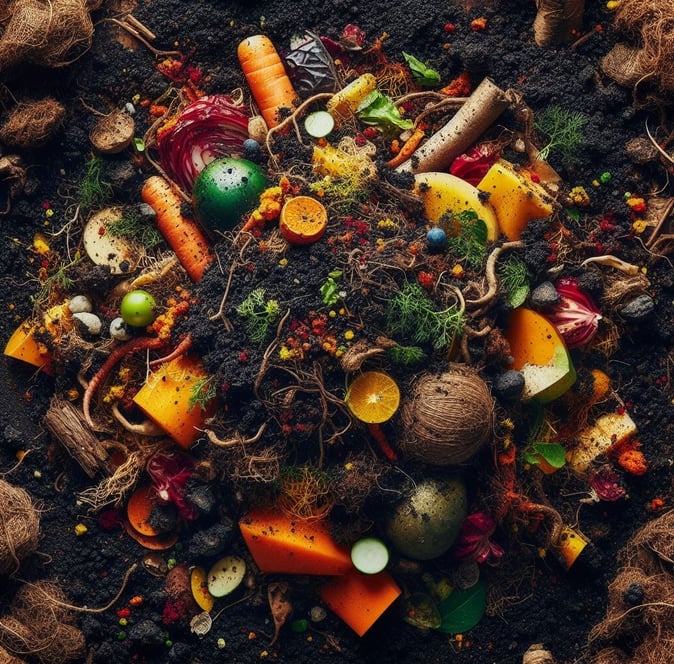Ode to Rich Soils
Composting: A Symphony of Decay and Renewal


In the quiet corners of gardens, beneath the tapestry of leaves,
there exists a silent alchemy—a transformative dance with decay
that unveils the hidden symphony of composting. This ancient
practice, often overlooked, is a poetic ode to sustainability and
the profound connection between humanity and the earth.
At its heart, composting is a harmonious collaboration with
nature, a symphony where kitchen scraps, fallen leaves, and
discarded remnants perform a ballet of transformation. It is a
poet's palette, where the colors of decay blend into a rich, fertile
soil—a canvas for life's vibrant tapestry.
In the composting bin, kitchen leftovers become the protagonists
in this grand narrative. Apple cores, potato peels, and coffee
grounds converge in a cyclical waltz, embracing their destiny as
agents of renewal. It is here, in the embrace of decomposition,
that triumph over waste unfolds.
Nature, the silent conductor of this composting concerto,
orchestrates the decay with grace. Microorganisms, fungi, and
bacteria become the musicians, each playing a vital role in
breaking down the organic symphony into humus—a soil nutrient
of unparalleled richness. Through this collaborative effort, waste
finds redemption in the metamorphosis of compost.
Composting is an artistry that requires patience and a keen ear to
the whispers of the wind. It is an invitation to observe the subtle
nuances of transformation, where eggshells and banana peels
become the verses of an eco-poem. Thoreau's spirit, echoing
through the leaves, would nod in approval at this humble communion with the earth.
Beyond the surface, composting is a reflection of a deeper philosophy—a commitment to stewardship and sustainability. It is a testament to the idea that even the smallest actions can yield monumental consequences. The composting bin becomes a sacred vessel, cradling the potential for regeneration and rebirth.
In the gardens where composting thrives, plants become the protagonists of a triumphant tale. Their roots delve into the enriched soil, absorbing the nutrients of decay, and in return, they offer a verdant testimony to the transformative power of compost. Flowers bloom with a vibrancy that mirrors the resilience of nature.
As we compost, we partake in a poetic dialogue with the land. It is a conversation that transcends time, reminding us that we are but stewards in a vast, interconnected ecosystem. Composting is a celebration of the cyclical nature of life—a dance with decay that beckons us to join in the transformative rhythm of the earth.
So, let us embrace the composting bin as our humble stage, where the mundane becomes sublime, and the discarded finds purpose. In this symphony of decay and renewal, we become custodians of a legacy—a legacy that sings of triumph over waste, a legacy that whispers to the earth, "I am here, in harmony with you."
